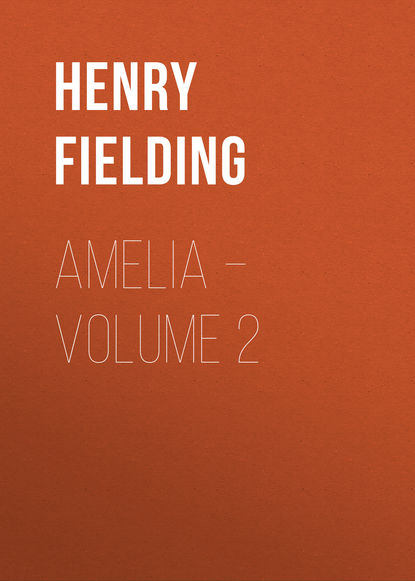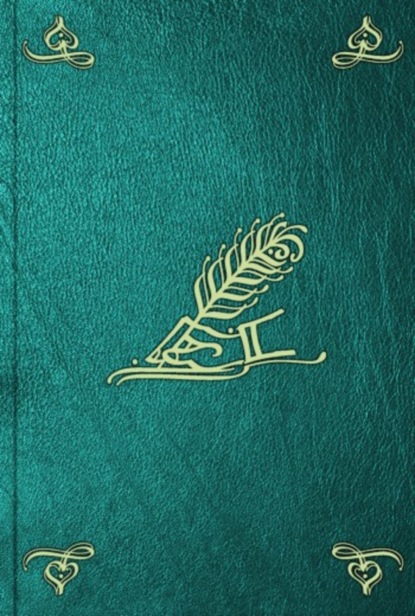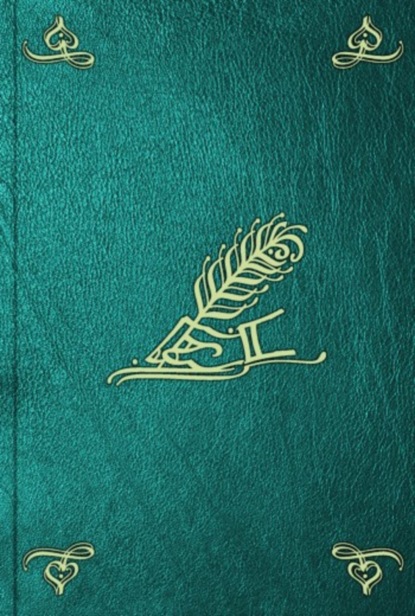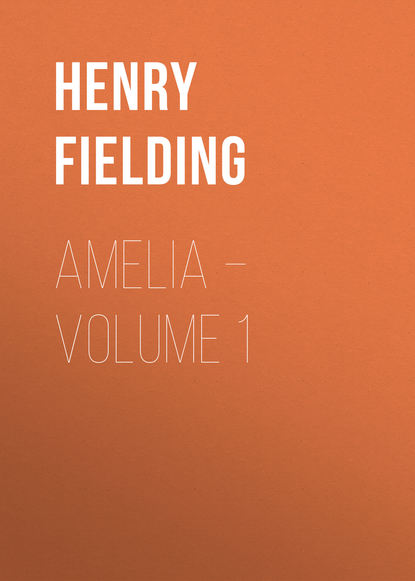 Полная версия
Полная версияПолная версия:
Генри Филдинг Amelia – Volume 2
- + Увеличить шрифт
- - Уменьшить шрифт

Henry Fielding
Amelia – Volume 2
BOOK V
Chapter i.
In which the reader will meet with an old acquaintance
Booth's affairs were put on a better aspect than they had ever worn before, and he was willing to make use of the opportunity of one day in seven to taste the fresh air.
At nine in the morning he went to pay a visit to his old friend Colonel James, resolving, if possible, to have a full explanation of that behaviour which appeared to him so mysterious: but the colonel was as inaccessible as the best defended fortress; and it was as impossible for Booth to pass beyond his entry as the Spaniards found it to take Gibraltar. He received the usual answers; first, that the colonel was not stirring, and an hour after that he was gone out. All that he got by asking further questions was only to receive still ruder answers, by which, if he had been very sagacious, he might have been satisfied how little worth his while it was to desire to go in; for the porter at a great man's door is a kind of thermometer, by which you may discover the warmth or coldness of his master's friendship. Nay, in the highest stations of all, as the great man himself hath his different kinds of salutation, from an hearty embrace with a kiss, and my dear lord or dear Sir Charles, down to, well Mr. – , what would you have me do? so the porter to some bows with respect, to others with a smile, to some he bows more, to others less low, to others not at all. Some he just lets in, and others he just shuts out. And in all this they so well correspond, that one would be inclined to think that the great man and his porter had compared their lists together, and, like two actors concerned to act different parts in the same scene, had rehearsed their parts privately together before they ventured to perform in public.
Though Booth did not, perhaps, see the whole matter in this just light, for that in reality it is, yet he was discerning enough to conclude, from the behaviour of the servant, especially when he considered that of the master likewise, that he had entirely lost the friendship of James; and this conviction gave him a concern that not only the flattering prospect of his lordship's favour was not able to compensate, but which even obliterated, and made him for a while forget the situation in which he had left his Amelia: and he wandered about almost two hours, scarce knowing where he went, till at last he dropt into a coffee-house near St James's, where he sat himself down.
He had scarce drank his dish of coffee before he heard a young officer of the guards cry to another, "Od, d – n me, Jack, here he comes – here's old honour and dignity, faith." Upon which he saw a chair open, and out issued a most erect and stately figure indeed, with a vast periwig on his head, and a vast hat under his arm. This august personage, having entered the room, walked directly up to the upper end, where having paid his respects to all present of any note, to each according to seniority, he at last cast his eyes on Booth, and very civilly, though somewhat coldly, asked him how he did.
Booth, who had long recognized the features of his old acquaintance Major Bath, returned the compliment with a very low bow; but did not venture to make the first advance to familiarity, as he was truly possessed of that quality which the Greeks considered in the highest light of honour, and which we term modesty; though indeed, neither ours nor the Latin language hath any word adequate to the idea of the original.
The colonel, after having discharged himself of two or three articles of news, and made his comments upon them, when the next chair to him became vacant, called upon Booth to fill it. He then asked him several questions relating to his affairs; and, when he heard he was out of the army, advised him earnestly to use all means to get in again, saying that he was a pretty lad, and they must not lose him.
Booth told him in a whisper that he had a great deal to say to him on that subject if they were in a more private place; upon this the colonel proposed a walk in the Park, which the other readily accepted.
During their walk Booth opened his heart, and, among other matters, acquainted Colonel Bath that he feared he had lost the friendship of Colonel James; "though I am not," said he, "conscious of having done the least thing to deserve it."
Bath answered, "You are certainly mistaken, Mr. Booth. I have indeed scarce seen my brother since my coming to town; for I have been here but two days; however, I am convinced he is a man of too nice honour to do anything inconsistent with the true dignity of a gentleman." Booth answered, "He was far from accusing him of anything dishonourable." – "D – n me," said Bath, "if there is a man alive can or dare accuse him: if you have the least reason to take anything ill, why don't you go to him? you are a gentleman, and his rank doth not protect him from giving you satisfaction." "The affair is not of any such kind," says Booth; "I have great obligations to the colonel, and have more reason to lament than complain; and, if I could but see him, I am convinced I should have no cause for either; but I cannot get within his house; it was but an hour ago a servant of his turned me rudely from the door." "Did a servant of my brother use you rudely?" said the colonel, with the utmost gravity. "I do not know, sir, in what light you see such things; but, to me, the affront of a servant is the affront of the master; and if he doth not immediately punish it, by all the dignity of a man, I would see the master's nose between my fingers." Booth offered to explain, but to no purpose; the colonel was got into his stilts; and it was impossible to take him down, nay, it was as much as Booth could possibly do to part with him without an actual quarrel; nor would he, perhaps, have been able to have accomplished it, had not the colonel by accident turned at last to take Booth's side of the question; and before they separated he swore many oaths that James should give him proper satisfaction.
Such was the end of this present interview, so little to the content of Booth, that he was heartily concerned he had ever mentioned a syllable of the matter to his honourable friend.
[This chapter occurs in the original edition of Amelia, between 1 and 2. It is omitted later, and would have been omitted here but for an accident. As it had been printed it may as well appear: for though it has no great value it may interest some readers as an additional illustration of Fielding's dislike to doctors. – ED.
Containing a brace of doctors and much physical matter.
He now returned with all his uneasiness to Amelia, whom he found in a condition very little adapted to relieve or comfort him. That poor woman was now indeed under very great apprehensions for her child, whose fever now began to rage very violently: and what was worse, an apothecary had been with her, and frightened her almost out of her wits. He had indeed represented the case of the child to be very desperate, and had prevailed on the mother to call in the assistance of a doctor.
Booth had been a very little time in the room before this doctor arrived, with the apothecary close at his heels, and both approached the bed, where the former felt the pulse of the sick, and performed several other physical ceremonies.
He then began to enquire of the apothecary what he had already done for the patient; all which, as soon as informed, he greatly approved. The doctor then sat down, called for a pen and ink, filled a whole side of a sheet of paper with physic, then took a guinea, and took his leave; the apothecary waiting upon him downstairs, as he had attended him up.
All that night both Amelia and Booth sat up with their child, who rather grew worse than better. In the morning Mrs. Ellison found the infant in a raging fever, burning hot, and very light-headed, and the mother under the highest dejection; for the distemper had not given the least ground to all the efforts of the apothecary and doctor, but seemed to defy their utmost power, with all that tremendous apparatus of phials and gallypots, which were arranged in battle-array all over the room.
Mrs. Ellison, seeing the distrest, and indeed distracted, condition of Amelia's mind, attempted to comfort her by giving her hopes of the child's recovery. "Upon my word, madam," says she, "I saw a child of much the same age with miss, who, in my opinion, was much worse, restored to health in a few days by a physician of my acquaintance. Nay, I have known him cure several others of very bad fevers; and, if miss was under his care, I dare swear she would do very well." "Good heavens! madam," answered Amelia, "why should you not mention him to me? For my part I have no acquaintance with any London physicians, nor do I know whom the apothecary hath brought me." "Nay, madam," cries Mrs. Ellison, "it is a tender thing, you know, to recommend a physician; and as for my doctor, there are abundance of people who give him an ill name. Indeed, it is true, he hath cured me twice of fevers, and so he hath several others to my knowledge; nay, I never heard of any more than one of his patients that died; and yet, as the doctors and apothecaries all give him an ill character, one is fearful, you know, dear madam." Booth enquired the doctor's name, which he no sooner heard than he begged his wife to send for him immediately, declaring he had heard the highest character imaginable of him at the Tavern from an officer of very good understanding. Amelia presently complied, and a messenger was despatched accordingly.
But before the second doctor could be brought, the first returned with the apothecary attending him as before. He again surveyed and handled the sick; and when Amelia begged him to tell her if there was any hopes, he shook his head, and said, "To be sure, madam, miss is in a very dangerous condition, and there is no time to lose. If the blisters which I shall now order her, should not relieve her, I fear we can do no more." – "Would not you please, sir," says the apothecary, "to have the powders and the draught repeated?" "How often were they ordered?" cries the doctor. "Only tertia quaq. hora," says the apothecary. "Let them be taken every hour by all means," cries the doctor; "and – let me see, pray get me a pen and ink." – "If you think the child in such imminent danger," said Booth, "would you give us leave to call in another physician to your assistance – indeed my wife" – "Oh, by all means," said the doctor, "it is what I very much wish. Let me see, Mr. Arsenic, whom shall we call?" "What do you think of Dr Dosewell?" said the apothecary. – "Nobody better," cries the physician. – "I should have no objection to the gentleman," answered Booth, "but another hath been recommended to my wife." He then mentioned the physician for whom they had just before sent. "Who, sir?" cries the doctor, dropping his pen; and when Booth repeated the name of Thompson, "Excuse me, sir," cries the doctor hastily, "I shall not meet him." – "Why so, sir?" answered Booth. "I will not meet him," replied the doctor. "Shall I meet a man who pretends to know more than the whole College, and would overturn the whole method of practice, which is so well established, and from which no one person hath pretended to deviate?" "Indeed, sir," cries the apothecary, "you do not know what you are about, asking your pardon; why, he kills everybody he comes near." "That is not true," said Mrs. Ellison. "I have been his patient twice, and I am alive yet." "You have had good luck, then, madam," answered the apothecary, "for he kills everybody he comes near." "Nay, I know above a dozen others of my own acquaintance," replied Mrs. Ellison, "who have all been cured by him." "That may be, madam," cries Arsenic; "but he kills everybody for all that – why, madam, did you never hear of Mr. – ? I can't think of the gentleman's name, though he was a man of great fashion; but everybody knows whom I mean." "Everybody, indeed, must know whom you mean," answered Mrs. Ellison; "for I never heard but of one, and that many years ago."
Before the dispute was ended, the doctor himself entered the room. As he was a very well-bred and very good-natured man, he addressed himself with much civility to his brother physician, who was not quite so courteous on his side. However, he suffered the new comer to be conducted to the sick-bed, and at Booth's earnest request to deliver his opinion.
The dispute which ensued between the two physicians would, perhaps, be unintelligible to any but those of the faculty, and not very entertaining to them. The character which the officer and Mrs. Ellison had given of the second doctor had greatly prepossessed Booth in his favour, and indeed his reasoning seemed to be the juster. Booth therefore declared that he would abide by his advice, upon which the former operator, with his zany, the apothecary, quitted the field, and left the other in full possession of the sick.
The first thing the new doctor did was (to use his own phrase) to blow up the physical magazine. All the powders and potions instantly disappeared at his command; for he said there was a much readier and nearer way to convey such stuff to the vault, than by first sending it through the human body. He then ordered the child to be blooded, gave it a clyster and some cooling physic, and, in short (that I may not dwell too long on so unpleasing a part of history), within three days cured the little patient of her distemper, to the great satisfaction of Mrs. Ellison, and to the vast joy of Amelia.
Some readers will, perhaps, think this whole chapter might have been omitted; but though it contains no great matter of amusement, it may at least serve to inform posterity concerning the present state of physic.]
Chapter ii
In which Booth pays a visit to the noble lord
When that day of the week returned in which Mr. Booth chose to walk abroad, he went to wait on the noble peer, according to his kind invitation.
Booth now found a very different reception with this great man's porter from what he had met with at his friend the colonel's. He no sooner told his name than the porter with a bow told him his lordship was at home: the door immediately flew wide open, and he was conducted to an ante-chamber, where a servant told him he would acquaint his lordship with his arrival. Nor did he wait many minutes before the same servant returned and ushered him to his lordship's apartment.
He found my lord alone, and was received by him in the most courteous manner imaginable. After the first ceremonials were over, his lordship began in the following words: "Mr. Booth, I do assure you, you are very much obliged to my cousin Ellison. She hath given you such a character, that I shall have a pleasure in doing anything in my power to serve you. – But it will be very difficult, I am afraid, to get you a rank at home. In the West Indies, perhaps, or in some regiment abroad, it may be more easy; and, when I consider your reputation as a soldier, I make no doubt of your readiness to go to any place where the service of your country shall call you." Booth answered, "That he was highly obliged to his lordship, and assured him he would with great chearfulness attend his duty in any part of the world. The only thing grievous in the exchange of countries," said he, "in my opinion, is to leave those I love behind me, and I am sure I shall never have a second trial equal to my first. It was very hard, my lord, to leave a young wife big with her first child, and so affected with my absence, that I had the utmost reason to despair of ever seeing her more. After such a demonstration of my resolution to sacrifice every other consideration to my duty, I hope your lordship will honour me with some confidence that I shall make no objection to serve in any country." – "My dear Mr. Booth," answered the lord, "you speak like a soldier, and I greatly honour your sentiments. Indeed, I own the justice of your inference from the example you have given; for to quit a wife, as you say, in the very infancy of marriage, is, I acknowledge, some trial of resolution." Booth answered with a low bow; and then, after some immaterial conversation, his lordship promised to speak immediately to the minister, and appointed Mr. Booth to come to him again on the Wednesday morning, that he might be acquainted with his patron's success. The poor man now blushed and looked silly, till, after some time, he summoned up all his courage to his assistance, and relying on the other's friendship, he opened the whole affair of his circumstances, and confessed that he did not dare stir from his lodgings above one day in seven. His lordship expressed great concern at this account, and very kindly promised to take some opportunity of calling on him at his cousin Ellison's, when he hoped, he said, to bring him comfortable tidings.
Booth soon afterwards took his leave with the most profuse acknowledgments for so much goodness, and hastened home to acquaint his Amelia with what had so greatly overjoyed him. She highly congratulated him on his having found so generous and powerful a friend, towards whom both their bosoms burnt with the warmest sentiments of gratitude. She was not, however, contented till she had made Booth renew his promise, in the most solemn manner, of taking her with him. After which they sat down with their little children to a scrag of mutton and broth, with the highest satisfaction, and very heartily drank his lordship's health in a pot of porter.
In the afternoon this happy couple, if the reader will allow me to call poor people happy, drank tea with Mrs. Ellison, where his lordship's praises, being again repeated by both the husband and wife, were very loudly echoed by Mrs. Ellison. While they were here, the young lady whom we have mentioned at the end of the last book to have made a fourth at whist, and with whom Amelia seemed so much pleased, came in; she was just returned to town from a short visit in the country, and her present visit was unexpected. It was, however, very agreeable to Amelia, who liked her still better upon a second interview, and was resolved to solicit her further acquaintance.
Mrs. Bennet still maintained some little reserve, but was much more familiar and communicative than before. She appeared, moreover, to be as little ceremonious as Mrs. Ellison had reported her, and very readily accepted Amelia's apology for not paying her the first visit, and agreed to drink tea with her the very next afternoon.
Whilst the above-mentioned company were sitting in Mrs. Ellison's parlour, serjeant Atkinson passed by the window and knocked at the door. Mrs. Ellison no sooner saw him than she said, "Pray, Mr. Booth, who is that genteel young serjeant? he was here every day last week to enquire after you." This was indeed a fact; the serjeant was apprehensive of the design of Murphy; but, as the poor fellow had received all his answers from the maid of Mrs. Ellison, Booth had never heard a word of the matter. He was, however, greatly pleased with what he was now told, and burst forth into great praises of the serjeant, which were seconded by Amelia, who added that he was her foster-brother, and, she believed, one of the honestest fellows in the world.
"And I'll swear," cries Mrs. Ellison, "he is one of the prettiest. Do, Mr. Booth, desire him to walk in. A serjeant of the guards is a gentleman; and I had rather give such a man as you describe a dish of tea than any Beau Fribble of them all."
Booth wanted no great solicitation to shew any kind of regard to Atkinson; and, accordingly, the serjeant was ushered in, though not without some reluctance on his side. There is, perhaps, nothing more uneasy than those sensations which the French call the mauvaise honte, nor any more difficult to conquer; and poor Atkinson would, I am persuaded, have mounted a breach with less concern than he shewed in walking across a room before three ladies, two of whom were his avowed well-wishers.
Though I do not entirely agree with the late learned Mr. Essex, the celebrated dancing-master's opinion, that dancing is the rudiment of polite education, as he would, I apprehend, exclude every other art and science, yet it is certain that persons whose feet have never been under the hands of the professors of that art are apt to discover this want in their education in every motion, nay, even when they stand or sit still. They seem, indeed, to be overburthened with limbs which they know not how to use, as if, when Nature hath finished her work, the dancing-master still is necessary to put it in motion.
Atkinson was, at present, an example of this observation which doth so much honour to a profession for which I have a very high regard. He was handsome, and exquisitely well made; and yet, as he had never learnt to dance, he made so awkward an appearance in Mrs. Ellison's parlour, that the good lady herself, who had invited him in, could at first scarce refrain from laughter at his behaviour. He had not, however, been long in the room before admiration of his person got the better of such risible ideas. So great is the advantage of beauty in men as well as women, and so sure is this quality in either sex of procuring some regard from the beholder.
The exceeding courteous behaviour of Mrs. Ellison, joined to that of Amelia and Booth, at length dissipated the uneasiness of Atkinson; and he gained sufficient confidence to tell the company some entertaining stories of accidents that had happened in the army within his knowledge, which, though they greatly pleased all present, are not, however, of consequence enough to have a place in this history.
Mrs. Ellison was so very importunate with her company to stay supper that they all consented. As for the serjeant, he seemed to be none of the least welcome guests. She was, indeed, so pleased with what she had heard of him, and what she saw of him, that, when a little warmed with wine, for she was no flincher at the bottle, she began to indulge some freedoms in her discourse towards him that a little offended Amelia's delicacy, nay, they did not seem to be highly relished by the other lady; though I am far from insinuating that these exceeded the bounds of decorum, or were, indeed, greater liberties than ladies of the middle age, and especially widows, do frequently allow to themselves.
Chapter iii.
Relating principally to the affairs of serjeant Atkinson
The next day, when all the same company, Atkinson only excepted, assembled in Amelia's apartment, Mrs. Ellison presently began to discourse of him, and that in terms not only of approbation but even of affection. She called him her clever serjeant, and her dear serjeant, repeated often that he was the prettiest fellow in the army, and said it was a thousand pities he had not a commission; for that, if he had, she was sure he would become a general.
"I am of your opinion, madam," answered Booth; "and he hath got one hundred pounds of his own already, if he could find a wife now to help him to two or three hundred more, I think he might easily get a commission in a marching regiment; for I am convinced there is no colonel in the army would refuse him."
"Refuse him, indeed!" said Mrs. Ellison; "no; he would be a very pretty colonel that did. And, upon my honour, I believe there are very few ladies who would refuse him, if he had but a proper opportunity of soliciting them. The colonel and the lady both would be better off than with one of those pretty masters that I see walking about, and dragging their long swords after them, when they should rather drag their leading-strings."
"Well said," cries Booth, "and spoken like a woman of spirit. – Indeed, I believe they would be both better served."
"True, captain," answered Mrs. Ellison; "I would rather leave the two first syllables out of the word gentleman than the last."
"Nay, I assure you," replied Booth, "there is not a quieter creature in the world. Though the fellow hath the bravery of a lion, he hath the meekness of a lamb. I can tell you stories enow of that kind, and so can my dear Amelia, when he was a boy."
"O! if the match sticks there," cries Amelia, "I positively will not spoil his fortune by my silence. I can answer for him from his infancy, that he was one of the best-natured lads in the world. I will tell you a story or two of him, the truth of which I can testify from my own knowledge. When he was but six years old he was at play with me at my mother's house, and a great pointer-dog bit him through the leg. The poor lad, in the midst of the anguish of his wound, declared he was overjoyed it had not happened to miss (for the same dog had just before snapt at me, and my petticoats had been my defence). – Another instance of his goodness, which greatly recommended him to my father, and which I have loved him for ever since, was this: my father was a great lover of birds, and strictly forbad the spoiling of their nests. Poor Joe was one day caught upon a tree, and, being concluded guilty, was severely lashed for it; but it was afterwards discovered that another boy, a friend of Joe's, had robbed the nest of its young ones, and poor Joe had climbed the tree in order to restore them, notwithstanding which, he submitted to the punishment rather than he would impeach his companion. But, if these stories appear childish and trifling, the duty and kindness he hath shewn to his mother must recommend him to every one. Ever since he hath been fifteen years old he hath more than half supported her: and when my brother died, I remember particularly, Joe, at his desire, for he was much his favourite, had one of his suits given him; but, instead of his becoming finer on that occasion, another young fellow came to church in my brother's cloaths, and my old nurse appeared the same Sunday in a new gown, which her son had purchased for her with the sale of his legacy."





